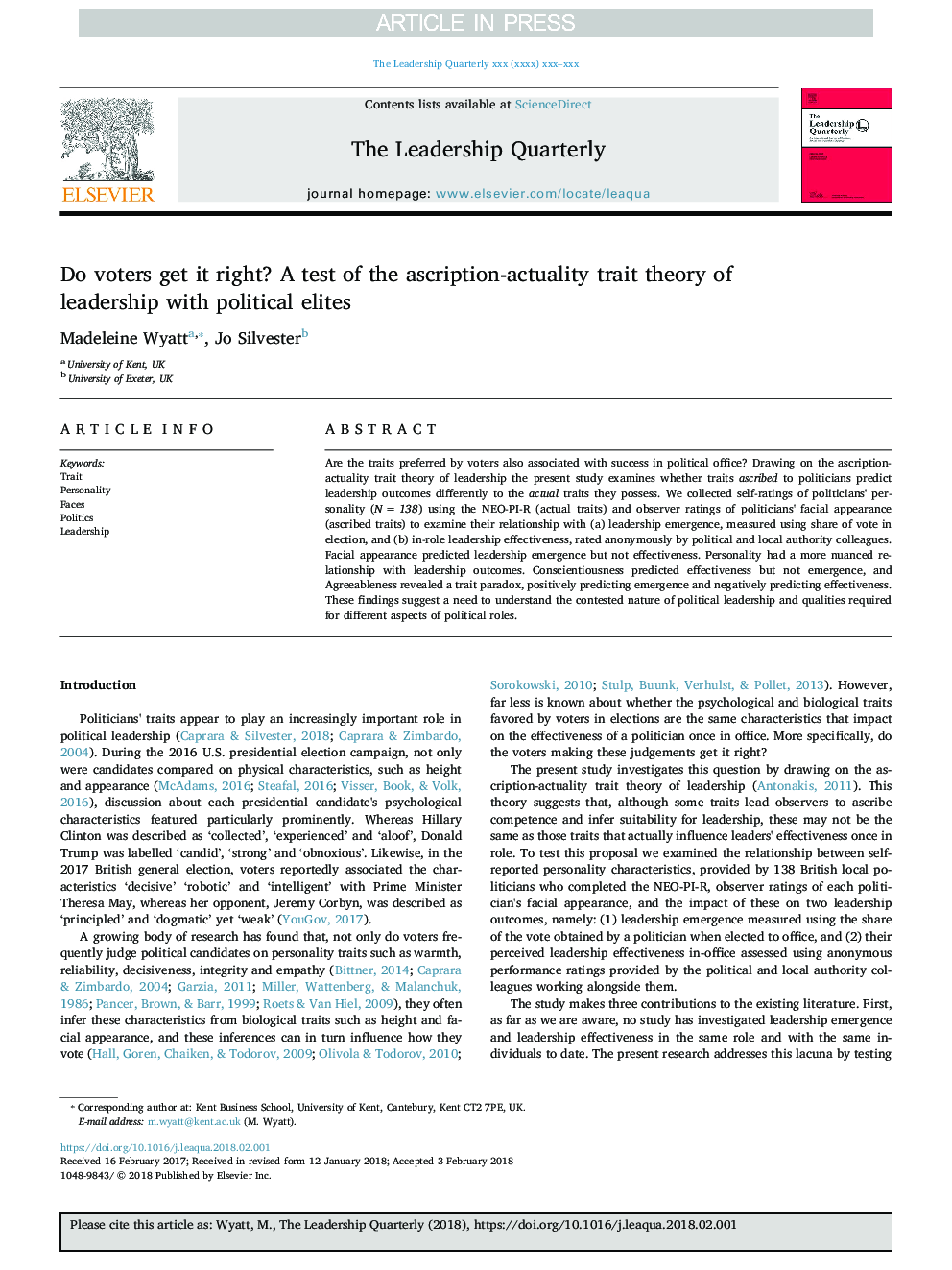| Article ID | Journal | Published Year | Pages | File Type |
|---|---|---|---|---|
| 10153315 | The Leadership Quarterly | 2018 | 13 Pages |
Abstract
Are the traits preferred by voters also associated with success in political office? Drawing on the ascription-actuality trait theory of leadership the present study examines whether traits ascribed to politicians predict leadership outcomes differently to the actual traits they possess. We collected self-ratings of politicians' personality (Nâ¯=â¯138) using the NEO-PI-R (actual traits) and observer ratings of politicians' facial appearance (ascribed traits) to examine their relationship with (a) leadership emergence, measured using share of vote in election, and (b) in-role leadership effectiveness, rated anonymously by political and local authority colleagues. Facial appearance predicted leadership emergence but not effectiveness. Personality had a more nuanced relationship with leadership outcomes. Conscientiousness predicted effectiveness but not emergence, and Agreeableness revealed a trait paradox, positively predicting emergence and negatively predicting effectiveness. These findings suggest a need to understand the contested nature of political leadership and qualities required for different aspects of political roles.
Related Topics
Social Sciences and Humanities
Business, Management and Accounting
Business and International Management
Authors
Madeleine Wyatt, Jo Silvester,
